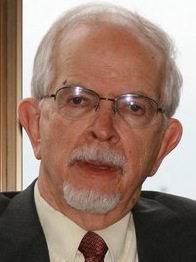Shavit continues with a third reason to answer the questions, why and how Trump?
"The third reason for Trump's success is fear of decline. All those who will be voting in the November election are children of the American century. They grew up in a world dominated in one way or another by the United States.
"But in the last 15 years these voters have seen America lose its place of leadership in the world. China's rise, Russia's provocation and the Middle East's despair prove that Washington is no longer in command of the world as it was in the past. Thus was created the yearning for a new commander, an unrestrained one."
Shavit finds that these three deep fears -- fear of the loss of identity, economic fear, and fear of decline -- have coalesced in recent years to "become a quiet dread."
"While on the surface, the economy seemed to be more or less recovering, the world more or less peaceful, and life more or less reasonable -- down below this dread gripped the heart of the American masses.
"In the lack of job security, communal security and security in the future, the dread intensified."
Senator Bernie Sanders could still emerge as the Democratic nominee in November.
That development, however, would be as surprising as Trump's sudden transformation from talk-show host to almost-certain presidential nominee.
Sanders' supporters share with Trump supporters a passionate attachment to their candidates.
Those of us who fought in the 1972 Democratic convention to give Senator George McGovern the nomination, remember well how passion can go a long way in politics when there is a cause and an inspiring candidate to lead that cause.
We also remember how difficult it is to confront a fixed establishment invested in an establishment candidate who is also an incumbent president named Richard Nixon.
If Hillary Clinton is the Democratic nominee she will run as the establishment candidate while Trump will run in the passion lane.
Given Sanders' background as a revolutionary, a Trump-Sanders general election would have put two opposites in the ring, both of whom would appeal, from different directions, to the passions that emerged out of the 1960s U.S. cultural/political revolution.
As a college student and a confirmed radical, Bernie Sanders was a fighter in that revolution. He fought on its cultural front lines, specifically to undermine the hegemony of the white ruling class.
Sanders marched and protested. In 1963, he was arrested during a civil rights protest demonstration, (above) on Chicago's South Side. He later became a successful politician, moving from mayor to U.S. Senator.
(Note: You can view every article as one long page if you sign up as an Advocate Member, or higher).






